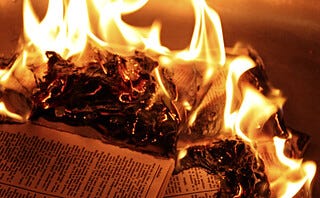The Word of the Lord Cannot Be Destroyed
Reflecting on the Third Sunday after the Epiphany: Two Days After Sunday (Year C)
Scripture
Psalter: Psalm 119:89-96
Old Testament: Jeremiah 36:11-26
Epistle: 2 Corinthians 7:2-12
___
Prayer
O God, you spoke your word and revealed your good news in Jesus, the Christ. Fill all creation with that word again, so that by proclaiming your joyful promises to all nations and singing of your glorious hope to all peoples, we may become one living b…
Keep reading with a 7-day free trial
Subscribe to Faith Seeking Understanding to keep reading this post and get 7 days of free access to the full post archives.




